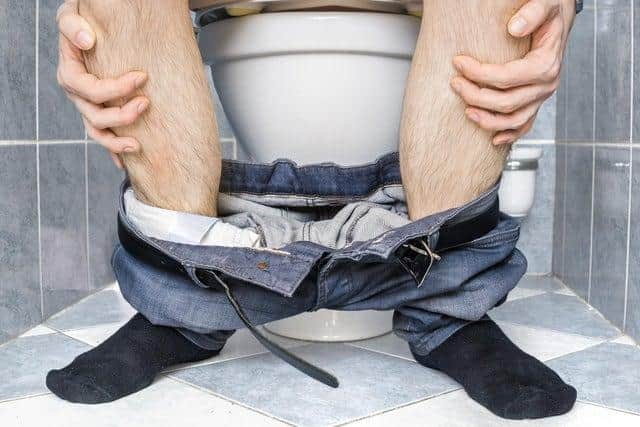Toilet trouble in Derbyshire as county identified as a gastroenteritis hotspot
and live on Freeview channel 276
GPs in the area reported seeing 107 patients suffering from gastroenteritis – inflammation of the gastrointestinal tract that causes diarrhoea, vomiting and stomach pain – during the week to November 8.
When compared to the England average, the number of gastroenteritis cases in Derbyshire was 45 per cent higher than would be expected.


Advertisement
Hide AdAdvertisement
Hide AdPublic Health England monitors levels of cases through its GP surgery symptoms tracker.
Gastroenteritis can be caused by many different viruses or bacterial infections – and even parasites.
The most common viral cause is norovirus, known as the winter vomiting bug, which is highly contagious and runs rampant in the colder months.
E.coli and salmonella are two of the most common causes of bacterial gastroenteritis.
Advertisement
Hide AdAdvertisement
Hide AdA spokesperson for the NHS said: “Gastroenteritis can be very unpleasant, but it usually clears up by itself within a week.
“You can normally look after yourself or your child at home until you're feeling better.
“Try to avoid going to your GP as gastroenteritis can spread to others very easily.
“Phone the 111 service or your GP if you’re concerned or need any advice.”
How can I help stop the spread of gastroenteritis?
Advertisement
Hide AdAdvertisement
Hide Ad- Stay off work, school or nursery until at least 48 hours after the symptoms have passed
- Ensure you and your child wash your hands frequently and thoroughly with soap and water, particularly after using the toilet and before preparing food. Don't rely on alcohol hand gels as they’re not always effective
- Disinfect any surfaces or objects which could be contaminated. It’s best to use a bleach-based household cleaner
- Wash contaminated items of clothing or bedding separately on a hot wash
Advertisement
Hide AdAdvertisement
Hide Ad- Don’t share towels, flannels, cutlery or utensils while you or your child is ill
- Flush away any poo or vomit in the toilet or potty and clean the surrounding area
- Practice good food hygiene. Make sure food is properly refrigerated, always cook food thoroughly and never eat food that is past its use-by date